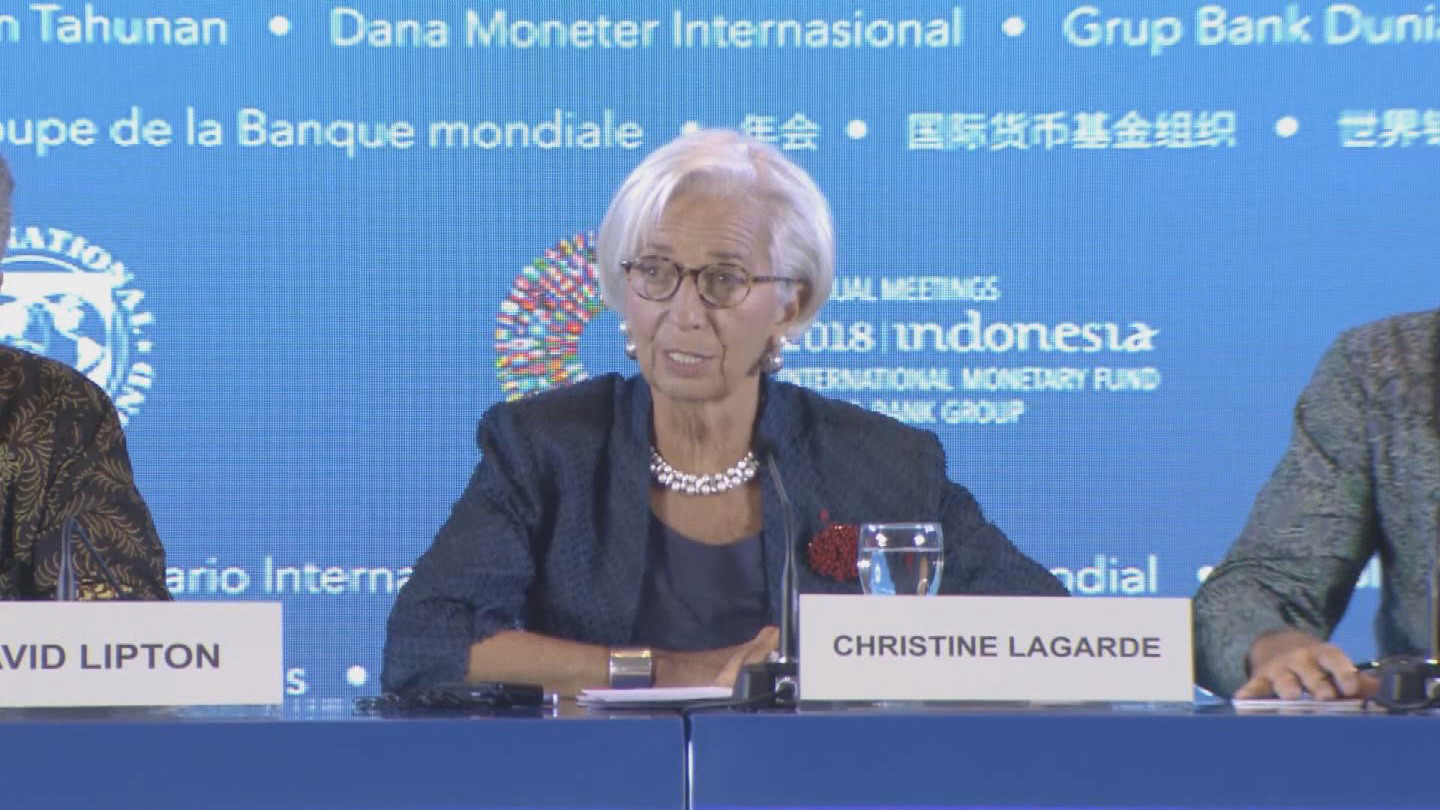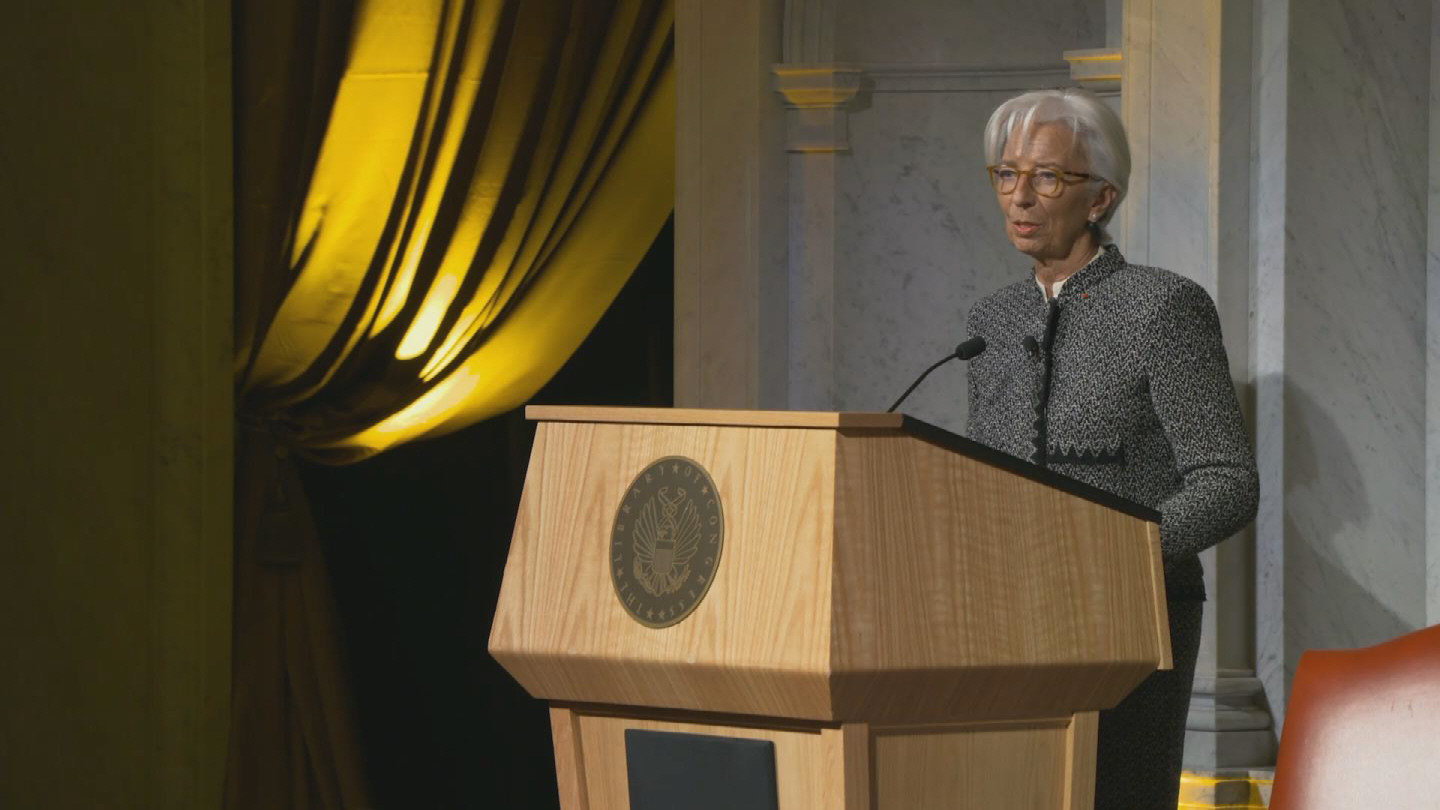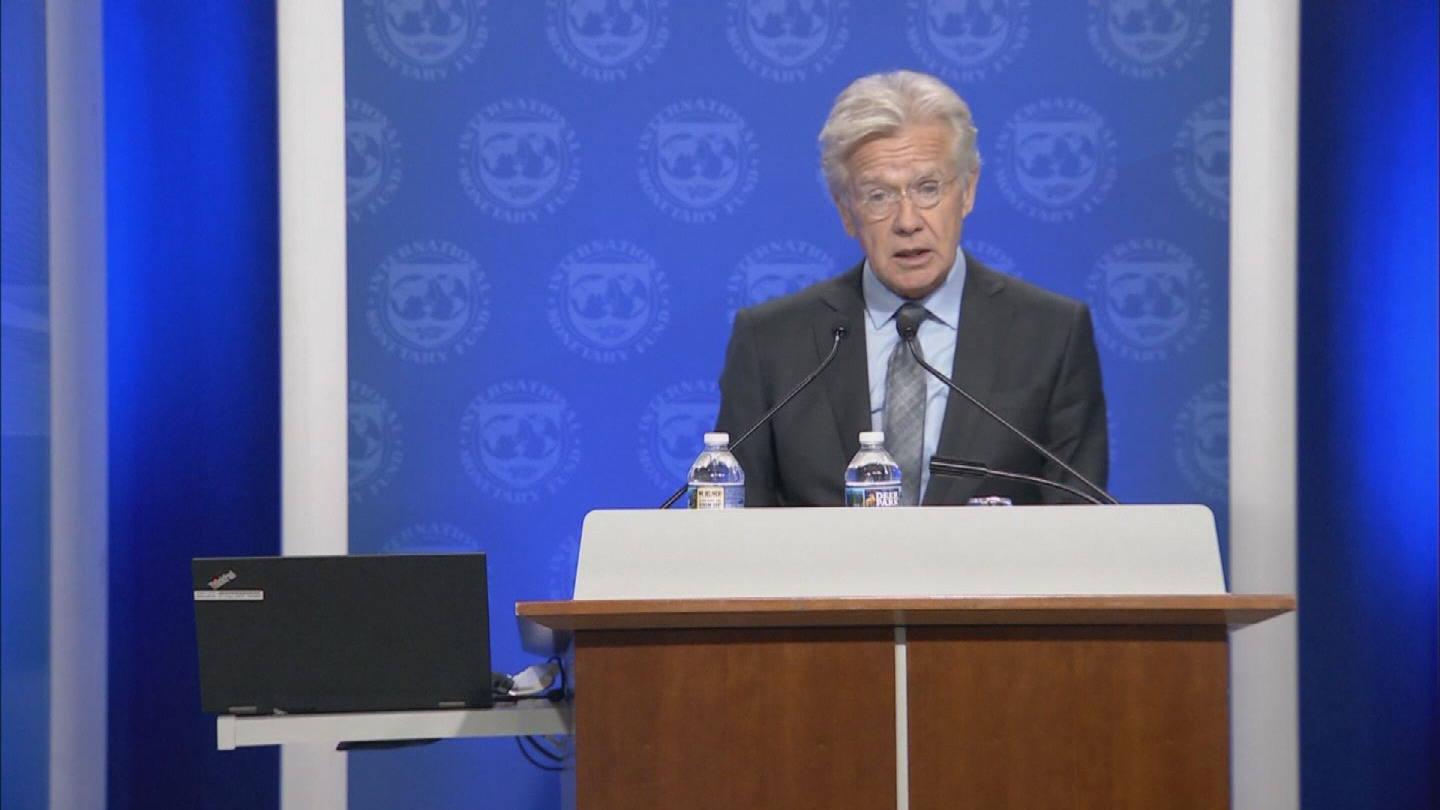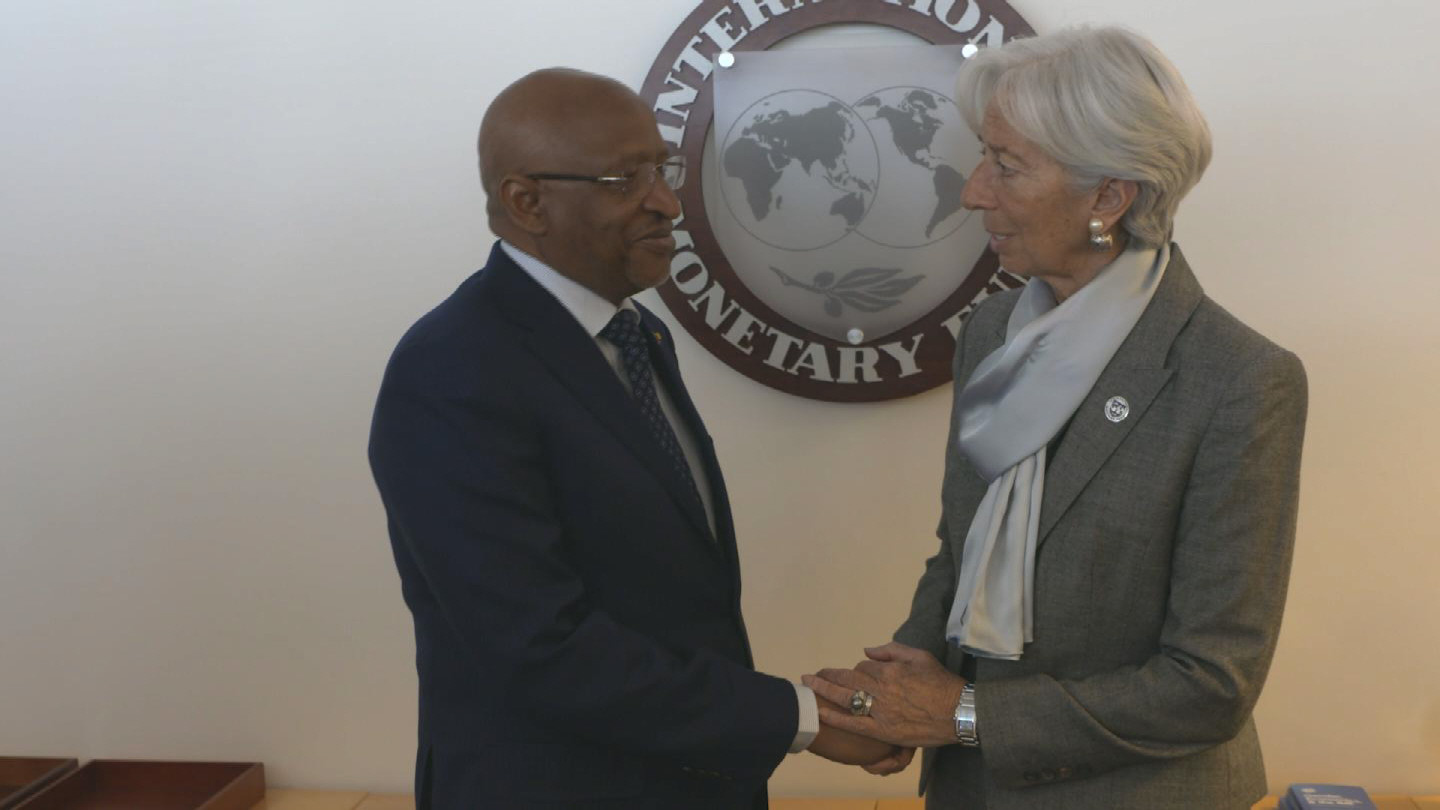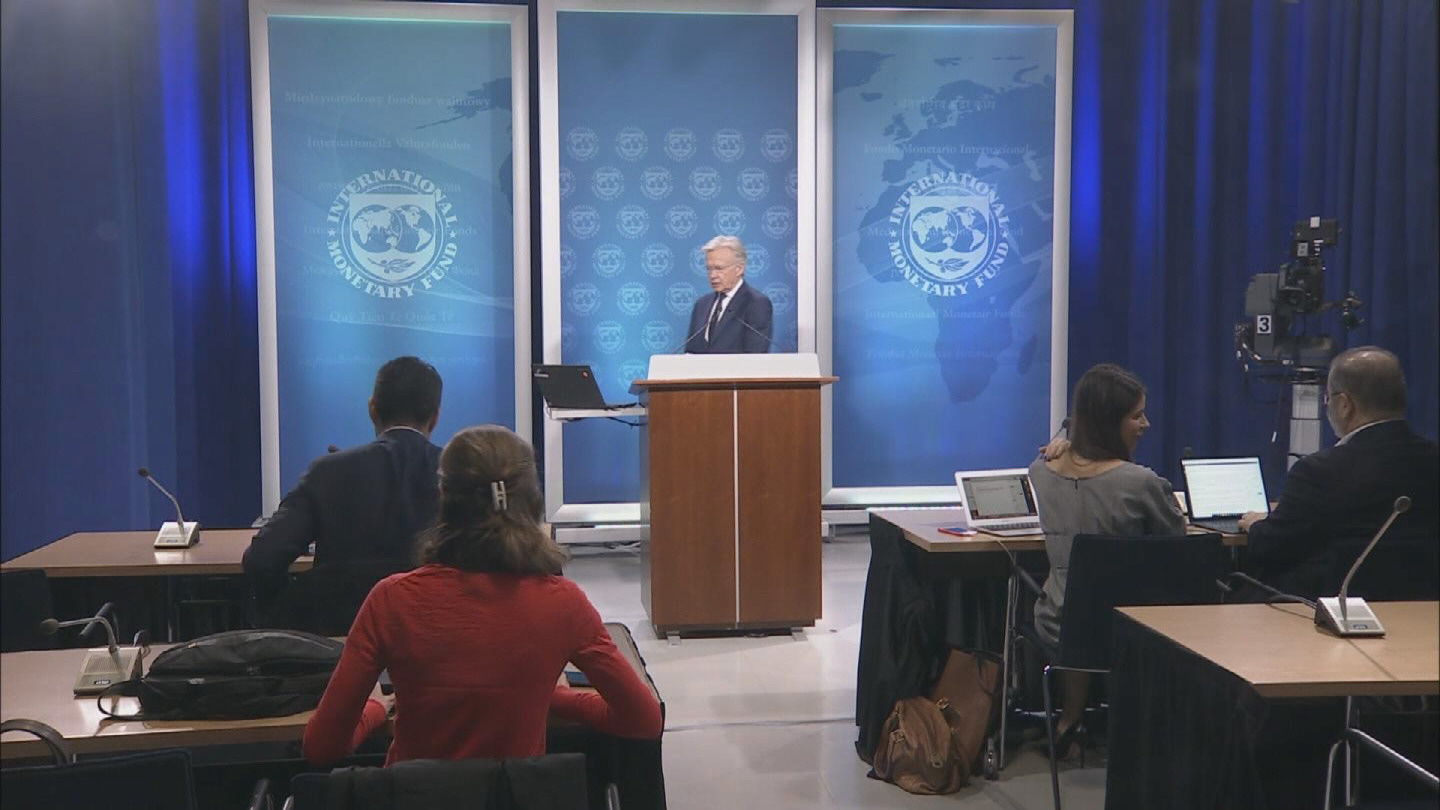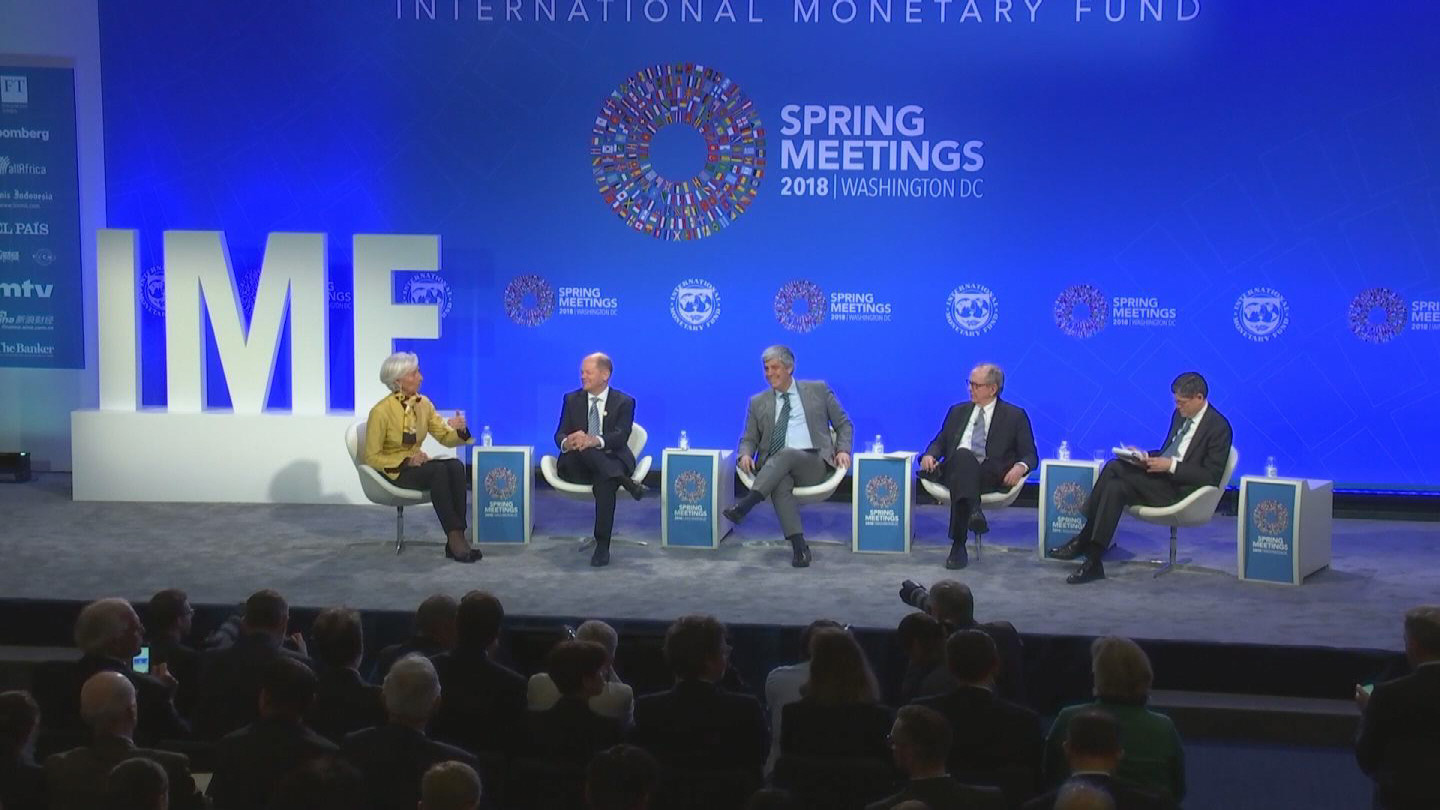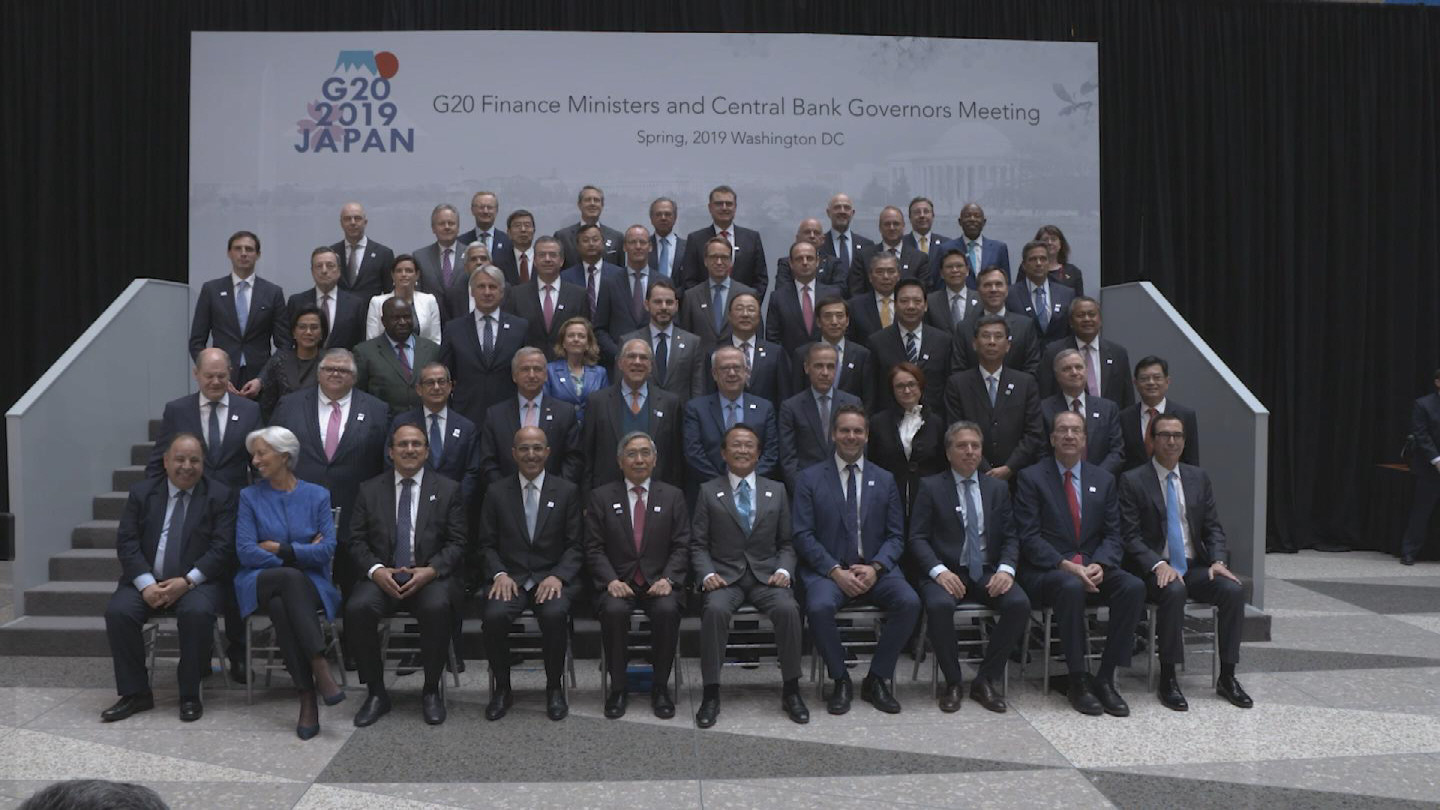IMF / GLOBAL FINANCIAL STABILITY REPORT PRESSER
STORY: IMF / GLOBAL FINANCIAL STABILITY REPORT PRESSER
TRT: 2:21
SOURCE: IMF
RESTRICTIONS: NONE
LANGUAGE: ENGLISH / NATS
DATELINE: 16 APRIL 2024, WASHINGTON, DC
10 APRIL 2024, WASHINGTON, DC
1. Various shots, IMF exteriors with Spring Meetings 2022 signage
16 APRIL 2024, WASHINGTON, DC
2. SOUNDBITE (English) Tobias Adrian, IMF Financial Counselor:
“Inflation is expected to return to target in countries around the world while economic activity slows. But, we don't foresee a global recession in our baseline. And, so this optimistic scenario has really fueled, asset valuations in recent months.”
3. Wide shot, reporters
4. SOUNDBITE (English) Tobias Adrian, IMF Financial Counselor:
“Our forecast remains that, inflation will return to target. And our expectation is that the Federal Reserve is going to start, cutting at some point. But how many cuts and the exact timing is certainly data dependent.”
5. Wide shot, reporters
6. SOUNDBITE (English) Tobias Adrian, IMF Financial Counselor:
“The strength of the US economy also has positive spillovers on emerging markets such as, such as Mexico. So, demand from the US may be stronger. And the easing of financial conditions more broadly can also be transmitted. So the. That effect can actually be positive or negative. So just looking at the exchange rate is probably not sufficient.”
7. Wide shot, reporters
8. SOUNDBITE (English) Jason Wu, IMF MCM Department Deputy:
“So, in light of potential higher for longer, particularly in the first scenario that Toby has outlined. Emerging markets will surely be tested again. Here it is important for them to maintain, appropriate, policy frameworks in order to build buffers, both in terms of the monetary, on the monetary side as well as, more medium term on the fiscal side as well, in order to preserve this resilience.”
9. Wide shot, reporters
10. Various shots, tilts and pans of IMF Exteriors
Inflation is coming down in much of the world, but there’s divergence in how soon central banks should consider cutting rates, the IMF said Tuesday (16 Apr) in Washington, DC in its semi-annual Global Financial Stability Report.
“Inflation is expected to return to target in countries around the world while economic activity slows. But, we don't foresee a global recession in our baseline. And, so this optimistic scenario has really fueled, asset valuations in recent months.”
said IMF financial counselor Tobias Adrian at a news conference for the
the IMF and World Bank Spring Meetings.
While economic growth in Europe and China has lagged, strong reports in the US have led markets to question their predictions regarding timing and frequency of rate cuts by the US Federal Reserve.
“Our forecast remains that, inflation will return to target. And our expectation is that the Federal Reserve is going to start, cutting at some point. But how many cuts and the exact timing is certainly data dependent,” said Adrian.
That strong American economy could lead to some distortions in the markets, as investors seek higher returns and safety of US investments. That might mean a higher dollar, and less funds for US partners or the developing world.
“The strength of the US economy also has positive spillovers on emerging markets such as, such as Mexico. So, demand from the US may be stronger. And the easing of financial conditions more broadly can also be transmitted. So the net effect can actually be positive or negative. So just looking at the exchange rate is probably not sufficient.” observed the Fund’s head of the Monetary and Capital Markets Department.
The report also noted that pandemic relief spending had left debt-to-GDP ratios elevated in much of the world. The IMF is urging countries to address this by rebuilding their fiscal buffers. But this could be more costly if th e US interest rates and the Dollar remains high.
“So, in light of potential ‘higher for longer,’ particularly in the first scenario that Tobias has outlined, Emerging markets will surely be tested again. Here it is important for them to maintain, appropriate, policy frameworks in order to build buffers, both in terms of the monetary, on the monetary side as well as, more medium term on the fiscal side as well, in order to preserve this resilience.” Said MCM Department Deputy Jason Wu.
